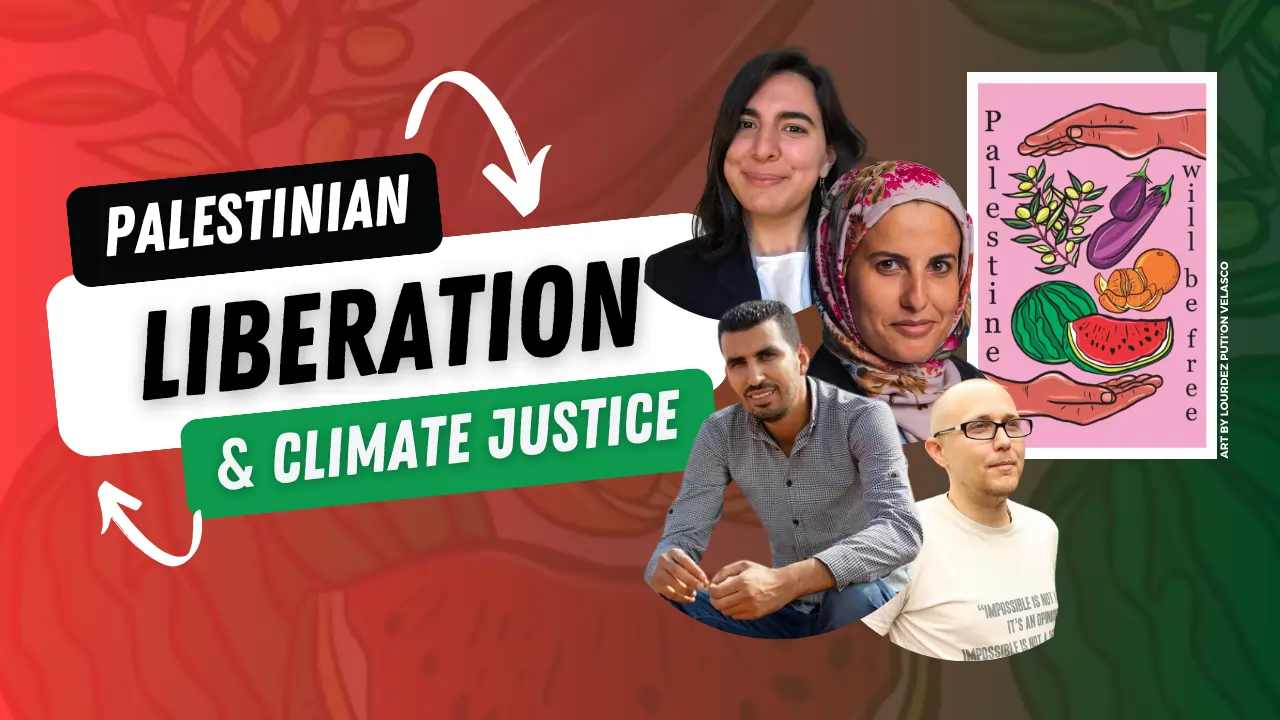español debajo
For Immediate Release
2 February 2011
As UN Declares International Year of Forests, Groups Demand Solutions to Root Causes of Deforestation: Insist Indigenous & Forest Peoples’ Rights Must Be at the Heart of Forest Protection
New York, 2 February 2011-At the launch of the High Level segment of the UN Forum on Forests today, Mr. Sha Zhukan, UN Under-Secretary-General for Economic and Social Affairs will declare 2011 “the International Year of Forests.” Civil society groups advocating forest protection, Indigenous Rights, and climate justice are launching a program called “The Future of Forests,” to ensure that forest protection strategies address the real causes of global forest decline, and are not oriented toward markets or profit-making.
Critics from Global Justice Ecology Project, Global Forest Coalition, Dogwood Alliance, Timberwatch Coalition, BiofuelWatch, and Indigenous Environmental Network charge that the UN’s premier forest scheme: REDD (Reducing Emissions from Deforestation and Forest Degradation), advanced amidst controversy at the recent UN Climate Summit in Cancún, will not protect forests or stop deforestation.
“It is ironic that the UN is declaring 2011 the International Year of Forests considering that forests today are being destroyed and degraded faster than ever before,” said Blessing Karumbidza, researcher at the Timberwatch Coalition in South Africa. “UN promises of social and environmental safeguards under REDD ring hollow considering how rates of forest loss have continued to escalate since the introduction of industry-friendly forest certification schemes. These schemes do nothing to prevent the wasteful consumption of timber products that drives forest loss, and do not address the ecological and social problems inherent to monoculture timber plantations.”
“The Southern US has led the way in forest destruction and degradation and the export of these egregious practices globally,” stated Scot Quaranda, Campaign Director of the Dogwood Alliance. “We are bringing increased attention to this disastrous reality to help stop the drive toward wood-based bioenergy, large-scale clearcutting, and the further conversion of forests to plantations in our region and worldwide.”
“REDD will not stop deforestation for a few simple reasons,” stated Anne Petermann, Executive Director of Global Justice Ecology Project and North American Focal Point for Global Forest Coalition. “First, it is based on an unscientific definition of forests that includes monoculture tree plantations and even genetically engineered trees. Second, REDD does not address the underlying drivers of deforestation, so logging may be curtailed in protected areas, but then pushed to non-protected forests. Third, REDD enables industries in the North to continue polluting, worsening climate chaos and in turn devastating forests. A further problem is that REDD does nothing to reduce toxic impacts on the communities near these polluters,” she concluded.
Forest peoples, especially Indigenous Peoples, insist there be real strategies in place to protect forests. These strategies must be consistent with the UN Declaration on the Rights of Indigenous Peoples, adhere to the rights of free, prior and informed consent, and ensure that forest peoples remain the caretakers of their lands.
“Putting forests in the care of the people that depend on them is the best way to protect them. This includes collectively demarcating and titling Indigenous Peoples’ territories and land, where most of the world’s forest are found,” stated Tom Goldtooth, Executive Director of Indigenous Environmental Network. “Governments and corporations that profit from their plunder will never protect forests.” [1] [2]
According to Dr. Rachel Smolker of BiofuelWatch, “The greatest emerging threat to forests is wood-based bioenergy. Scientific models predict that if the demand for wood-based energy continues to rise unabated, all forests and grasslands will be converted to bioenergy plantations by 2060.” [3]
Global Forest Coalition released a report called “Getting to the Roots” at the recent UN Climate Conference in Cancún, Mexico to analyze the underlying causes of deforestation. The report concludes, “neoliberal economic policies are the main underlying causes since they are at the root of many of the other drivers of deforestation.” [4]
Contacts:
Anne Petermann, Global Justice Ecology Project (U.S.) +1.802.578.0477
Blessing Karumbidza, Timberwatch Coalition (South Africa) +27.82.5079043
Simone Lovera, Global Forest Coalition (Paraguay) +595.981.407375
Tom Goldtooth, Indigenous Environmental Network (U.S.) +1.218.760-0442
Scot Quaranda, Dogwood Alliance (U.S.) +1.828.242.3596
Almuth Ernsting, Biofuelwatch (UK) +44.1224.324797
NOTES
[1] Download the PDF of Global Forest Coalition’s Report, “The Hottest REDD Issues”
[2] Download Indigenous Environmental Network’s report, “The NO REDD Reader”
[3] View Science Magazine’s article, Implications of Limiting CO2 Concentrations for Land Use and Energy
[4] Download Global Forest Coalition’s report: Getting to the Roots: Underlying Causes of Deforestation and Forest Degradation, and Drivers of Forest Restoration
__________________________________________________________
Febrero 2 de 2011
Mientras la ONU Declara el Año Internacional de los Bosques, los Grupos Exigen Soluciones a las Raíces Causantes de la Deforestación
Se Insiste en que los Derechos de los Indígenas y de Quienes Habitan en el Bosque deben Permanecer en el Centro de la Protección de los Bosques
Nueva York, Febrero 2 de 2011-Hoy, durante el lanzamiento del segmento de Alto Nivel del Foro sobre Bosques de las Naciones Unidas, el Sr. Sha Zhukan, Secretario General Adjunto de la ONU para Asuntos Económicos y Sociales, declarará el 2011 como “ el Año Internacional de los Bosques”. Los grupos de sociedad civil que promueven la protección de los bosques, los derechos indígenas y la justicia climática, están lanzando un programa denominado “El Futuro de los Bosques” para asegurar que las estrategias de protección de bosques aborden las verdaderas causas de su reducción globalmente, y que no estén orientadas hacia mercados o rentabilidad.
Críticos que hacen parte del Proyecto de Justicia Ecológica Global, la Coalición Mundial por los Bosques (GFC por sus siglas en Inglés), la Alianza Dogwood, la Coalición Timberwatch, BioFuelWatch, y la Red Ambiental Indígena, establecen que el régimen principal de bosques de la ONU: REDD (Reducción de Emisiones por Deforestación y Degradación de Bosques), ha avanzado en medio de la controversia en la reciente Cumbre de Cambio Climático de la ONU celebrada en Cancún y que además, no protegerá los bosques o detendrá la deforestación.
“Es irónico que la ONU esté declarando al 2011 como el Año Internacional de los Bosques si se tiene en cuenta que los bosques nunca antes habían sido destruidos y degradados tan rápidamente como hoy en día” aseguró Blessing Karumbidza, investigadora de la Coalición Timberwatch en Suráfrica. “Las promesas de la ONU de garantías sociales y ambientales bajo el régimen de REDD, resultan vacías al considerar el continuo incremento en las tasas de pérdida de bosques desde la introducción de esquemas de certificación que han favorecido a la industria forestal. Estos esquemas no hacen nada para prevenir el consumo excesivo de productos de madera y por el contrario, inducen la pérdida de bosques y no abordan los problemas sociales y ecológicos inherentes a las plantaciones de monocultivos de madera”.
“El sur de los Estados Unidos ha dirigido el camino en cuanto a destrucción y degradación de bosques así como la exportación de estas prácticas atroces a nivel global”, señaló Scot Quaranda, Director de Campañas de la Alianza Dogwood. “Estamos poniendo mayor atención a esta realidad desastrosa para ayudar a detener el impulso hacia la bioenergía basada en madera, la tala a gran escala, y la conversión subsecuente de bosques en plantaciones tanto en nuestra región como a nivel mundial”.
“REDD no detendrá la deforestación por un par de simples razones”, indicó Anne Petermann, Directora Ejecutiva del Proyecto Global de Justicia Ecológica y Punto Focal de Norte América para la GFC. “Primero, se basa en definición de bosques no-científica que incluye plantaciones de monocultivos de árboles e inclusive árboles modificados genéticamente. Segundo, REDD no aborda las causas subyacentes de la deforestación, de manera que la tala se puede reducir en áreas protegidas pero luego es dirigida hacia áreas de bosques no protegidas. Tercero, los esquemas REDD permiten que las industrias en el Norte continúen contaminando, empeorando el caos climático y destruyendo bosques a cambio. Un problema adicional es que REDD no hace nada para reducir los impactos por desechos tóxicos que ocurren en comunidades que habitan cerca de estas industrias”, Anne concluye.
Los habitantes del bosque, especialmente los pueblos indígenas, insisten en que se establezcan estrategias reales para proteger los bosques. Estas estrategias deben ser consistentes con la Declaración de los Derechos de los Pueblos Indígenas de la ONU; adherirse a los derechos de consentimiento libre, previo e informado, y asegurar que los habitantes del bosque permanezcan a cargo de sus territorios.
“Poner los bosques al cuidado de las personas que de ellos dependen, es la mejor manera de protegerlos. Esto incluye demarcar y titular colectivamente los territorios de los Pueblos Indígenas en donde se encuentran la mayoría de los bosques” indicó Tom Goldtooth, Director Ejecutivo de la Red Ambiental Indígena. “ Los gobiernos y las corporaciones que se lucran del saqueo a estos territorios, jamás protegerán los bosques”. [1] [2]
Según la Dra. Rachel Smolker de BiofuelWatch, “La amenaza emergente más grande de los bosques es la bioenergía basada en la madera. Los modelos científicos predicen que si la demanda por energía basada en madera continúa incrementándose y no hay disminución, para el 2060 todos los bosques y las praderas se convertirán en plantaciones para bioenergía”. [3]
Durante la reciente Conferencia de la ONU de Cambio Climático en Cancún, México, la GFC publicó un informe denominado “Llegando a las Raíces” para analizar las causas subyacentes de la deforestación. El reporte concluye que “las políticas económicas neoliberales son las causas principales ya que se encuentran en la raíz de muchos otros factores que conducen a la deforestación.” [4]
Contactos:
Anne Petermann, Proyecto Global de Justicia Ecológica (U.S.A.) +1.802.578.0477
Blessing Karumbidza, Coalición Timberwatch (Suráfrica) +27.82.5079043
Simone Lovera, Global Forest Coalition (Paraguay) +595.981.407375
Tom Goldtooth, Red Ambiental Indígena (U.S.A) +1.218.751.4967
Scot Quaranda, Alianza Dogwood (U.S.A) +1.828.242.3596
NOTAS
[1] Descargar el PDF en Inglés del reporte de la Global Forest Coalition (GFC), “The Hottest REDD Issues”
[2] Descargar el reporte en Inglés de la Red Ambiental Indígena, “The NO REDD Reader”
[3] Ver el artículo en Inglés de la Revista Science, Implications of Limiting CO2 Concentrations for Land Use and Energy
[4] Descargar el reporte en Ingés de la Global Forest Coalition (GFC): Getting to the Roots: Underlying Causes of Deforestation and Forest Degradation, and Drivers of Forest Restoration



